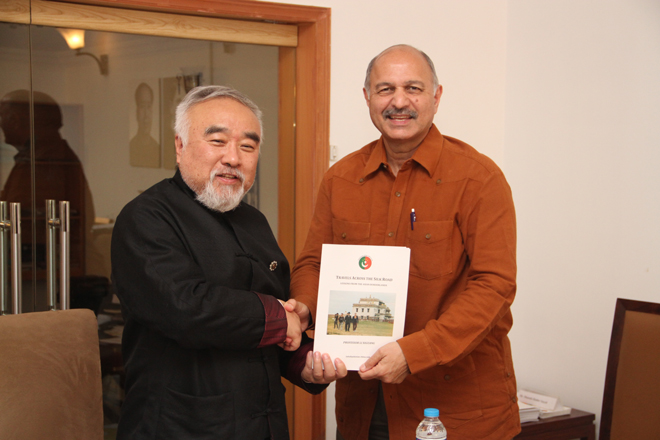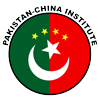Roundtable held by Pakistan-China Institute in Collaboration with Konrad Adenauer Stiftung, 22nd October, 2014
Source : Pakistan China Institute Date : 29-010-2014 By : PCI Reporter
 |
The Pakistan-China Institute organized a Roundtable Conference on October 22, 2014, in collaboration with Konrad Adenauer Stiftung, themed “Silk Road Economic Belt: Security Challenges and Solutions”, moderated by the Chairman of the Pakistan-China Institute, Senator Mushahid Hussain Sayed, the main discussants were Prof. Li Xiguang, Dean of Tsinghua University International Center for Communication Studies, and Dr. Mu Zhaoming, Associate Professor at the Tsinghua University.
Professor Li Xiguang spoke on the key issues pertinent to implementation of the Silk Road Economic Belt, touching on areas such as security, infrastructural lacking and financial feasibility. He also discussed the Maritime Silk Road and the complementary role it played in strengthening regional trade and connectivity. He stated that these ventures were based on economic cooperation, supported by cultural communication and guided by the philosophy of openness and inclusiveness.

He discussed the Indian perceptions of and their perspective on the major projects of regional connectivity that China had undertaken recently, including the Pakistan-China Economic Corridor. He discussed the prospects of the Bangladesh-China-India-Myanmar Corridor as well.
Prof. Li touched upon Chinese views of the NATO presence in Afghanistan and also spoke on China’s security concerns in Afghanistan. He stated China and Russia were strategic allies, briefly discussing the 7000 km long high speed train project underway, which would connect Beijing to Moscow and pointed out their mutual concerns for regional security.
He also shared the high speed railway project currently underway in China which would connect Urumqi to Beijing and will reduce travel times to 12 hours.
Dr. Mu Zhaoming spoke on China’s peaceful foreign policy, insisting on respecting sovereignty, forming cooperative relations with all countries in the region and strengtheningunity to open up to the outer world. China Pakistan Economic Corridor and the Silk Road Project, he stressed; were aimed at strengthening the economy of whole region and bringing peace and stability to Central Asia and South Asia, highlighting the desire of regional countries to harness benefits from the Silk Road Project. Dr. Mu stated that financing the project and technological aspects did not constitute major concerns but security was a serious concern.
A discussion amongst the participants followed, in which a number of pertinent issues were discussed, including the opportunities that would be afforded to Chinese people with the establishment of the railway line between Beijing and Urumqi, counter terrorism measures and ensuring a stable and secure domestic and regional environment, Sino-Pak relations, Pak-China Strategic ties and the Pak-China bond of trust and friendship.
Towards the end, Senator Mushahid Hussain Sayed thanked the discussants and all participants for a simulating discussion and brought the session to a close with a summary of the key issues that had been addressed. He then presented Prof. Li Xiguang with the book “Travels Across the Silk Road: Lessons from the Asian Borderlands, authored by Prof. Li and published jointly by PCI and KAS.
